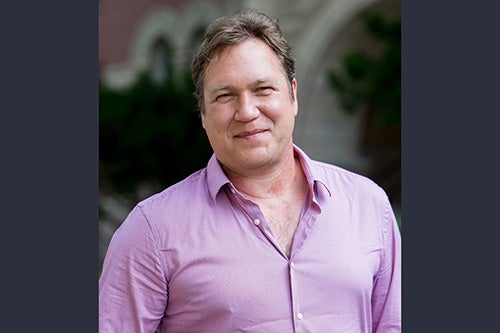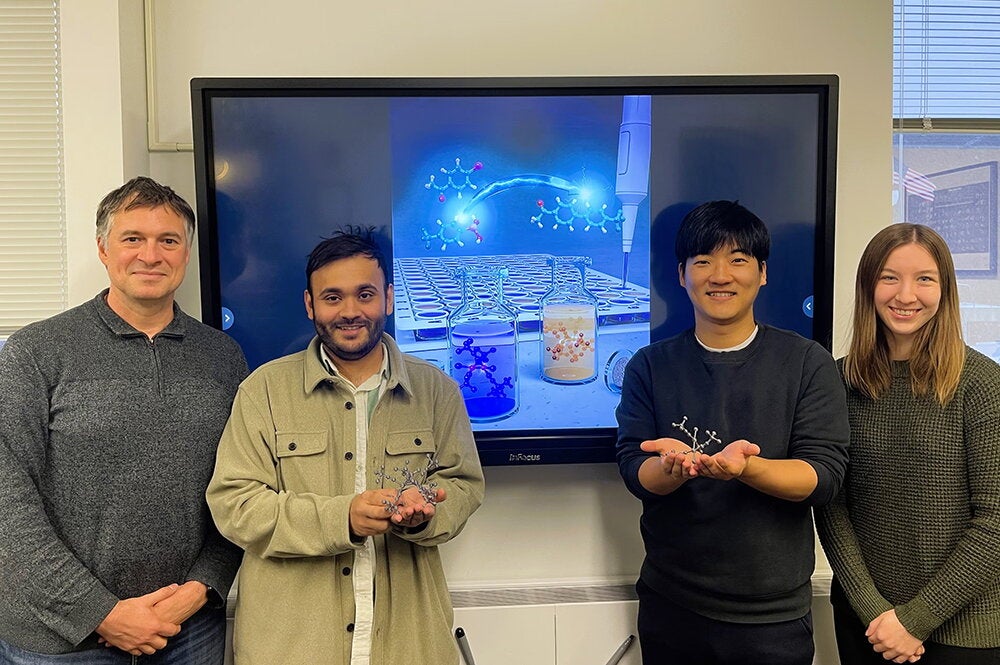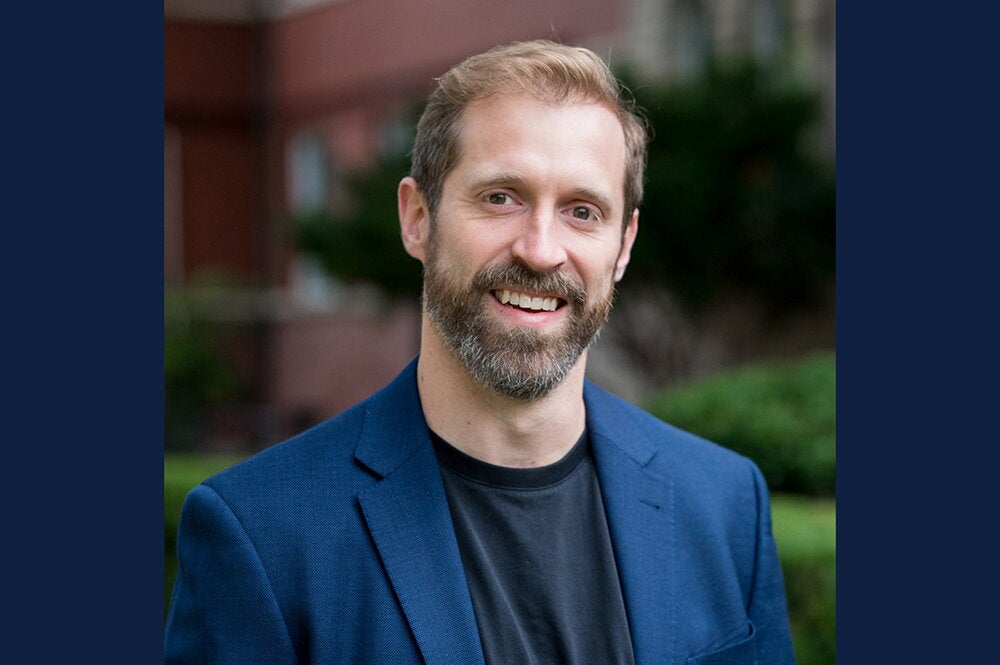

A faculty members in the College of Liberal Arts & Sciences has been named a 2024 Fellow of the American Association for the Advancement of Science, the world’s largest general scientific society.
Chemistry professor Stephan Link is among the 471 scientists, engineers, and innovators chosen by their peers for their scientifically and socially distinguished achievements.
Link specializes in plasmonic nanoparticles — metallic particles with abilities to scatter and absorb light that make them useful for applications from solar cells to imaging to cancer treatment — and techniques for seeing and studying them. Link was chosen “for distinguished accomplishments in steady-state and time-resolved spectroscopy and microscopy of nanostructures relating radiative, nonradiative, chiroptical and mechanical properties to the morphology of individual and coupled plasmonic nanoparticles.” Link is the Charles W. and Genevieve M. Walton Professor in chemistry, and he also is affiliated with the department of electrical and computer engineering and the Materials Research Laboratory.
Animal sciences professors Isaac Cann Matthew Wheeler were also selected. Cann is an expert on fiber, from the enzymes that break down fiber and cellulose — a key process for plant-based fuel production as well as for human digestion and gut health — to microbial peptides that impact organ fibrosis, especially in lung fibrosis and diabetes. Cann also is affiliated with the Carl R. Woese Institute for Genomic Biology, Center for East Asian and Pacific Studies, Division of Nutritional Sciences, and Department of Microbiology at the U of I.
Wheeler’s research focuses on enhancing global food supply and animal agriculture through biotechnology, especially through livestock reproduction and genetics. His work has implications for human health, not only in addressing hunger and malnutrition, but also in developing better models and tissue-based techniques for studying disease. Wheeler also is affiliated with the Beckman Institute for Advanced Science and Technology, the Carl R. Woese Institute for Genomic Biology, the Carle Illinois College of Medicine, The Grainger College of Engineering and the College of Veterinary Medicine at the U. of I.


